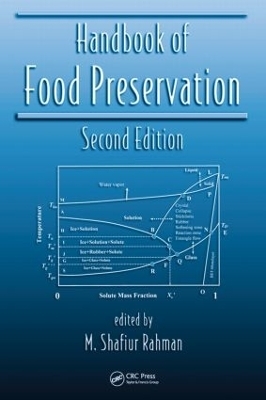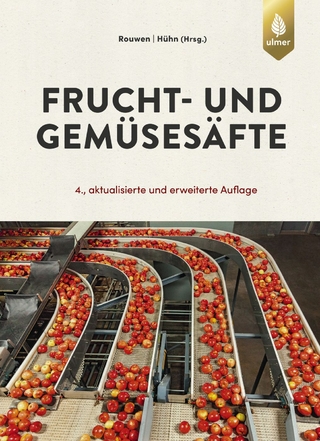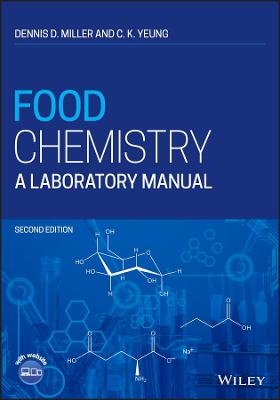
Handbook of Food Preservation
Seiten
2007
|
2nd edition
Crc Press Inc (Verlag)
978-1-57444-606-7 (ISBN)
Crc Press Inc (Verlag)
978-1-57444-606-7 (ISBN)
Offers fundamental and practical aspects of the preservation methods and techniques that are important to those in the industry. This book emphasizes practical, cost-effective, and safe strategies for implementing preservation techniques and describes the mechanisms involved in each preservation method by exploring the effects on food properties.
The processing of food is no longer simple or straightforward, but is now a highly inter-disciplinary science. A number of new techniques have developed to extend shelf-life, minimize risk, protect the environment, and improve functional, sensory, and nutritional properties. The ever-increasing number of food products and preservation techniques creates a great demand for an up to date handbook that will facilitate understanding of the methods, technology, and science involved in the manipulation of these conventional and sophisticated preservation methods.
Extensively revised, reorganized, and expanded from 25 to 44 chapters, the Handbook of Food Preservation, Second Edition remains the definitive resource on food preservation. It emphasizes practical, cost-effective, and safe-strategies for implementing preservation techniques and dissects the exact mode or mechanism involved in each method by highlighting the effects on food properties. Divided into five sections the book begins with an overview of food preservation and handling including fresh fruits and vegetables, grains and pulses, fish, red meat, and milk. It presents comprehensive preservation methods based on chemical and microbiological additives, such as fermentation and pH lowering agents. The book details methods of physical manipulation involving modified-atmosphere packaging, membrane technology, surface treatment, and edible coating. There is also an extensive description of preservation methods using thermal and other energy such as irradiation, high-pressure, and pulsed electric or magnetic fields. Finally, the book presents a range of indirect approaches to improve quality and safety and good manufacturing practices.
Containing fundamental and practical aspects of today's current and emerging preservation methods, the Handbook of Food Preservation, Second Edition helps practicing industrial and academic food scientists, technologists, and engineers develop high-quality, safe products through better understanding and control of the processes.
The processing of food is no longer simple or straightforward, but is now a highly inter-disciplinary science. A number of new techniques have developed to extend shelf-life, minimize risk, protect the environment, and improve functional, sensory, and nutritional properties. The ever-increasing number of food products and preservation techniques creates a great demand for an up to date handbook that will facilitate understanding of the methods, technology, and science involved in the manipulation of these conventional and sophisticated preservation methods.
Extensively revised, reorganized, and expanded from 25 to 44 chapters, the Handbook of Food Preservation, Second Edition remains the definitive resource on food preservation. It emphasizes practical, cost-effective, and safe-strategies for implementing preservation techniques and dissects the exact mode or mechanism involved in each method by highlighting the effects on food properties. Divided into five sections the book begins with an overview of food preservation and handling including fresh fruits and vegetables, grains and pulses, fish, red meat, and milk. It presents comprehensive preservation methods based on chemical and microbiological additives, such as fermentation and pH lowering agents. The book details methods of physical manipulation involving modified-atmosphere packaging, membrane technology, surface treatment, and edible coating. There is also an extensive description of preservation methods using thermal and other energy such as irradiation, high-pressure, and pulsed electric or magnetic fields. Finally, the book presents a range of indirect approaches to improve quality and safety and good manufacturing practices.
Containing fundamental and practical aspects of today's current and emerging preservation methods, the Handbook of Food Preservation, Second Edition helps practicing industrial and academic food scientists, technologists, and engineers develop high-quality, safe products through better understanding and control of the processes.
Sultan Qaboos University, Muscat, Sultanate of Oman
Preservation of Fresh Food Products, Preservation Using Chemicals and Microbes, Preservation by Controlling Water, Structure, and Atmosphere, Preservation Using Heat and Energy, Enhancing Food Preservation by Indirect Approach
| Erscheint lt. Verlag | 16.7.2007 |
|---|---|
| Reihe/Serie | Food Science and Technology |
| Zusatzinfo | 263 Tables, black and white; 37 Halftones, black and white; 284 Illustrations, black and white |
| Verlagsort | Bosa Roca |
| Sprache | englisch |
| Maße | 178 x 254 mm |
| Gewicht | 2154 g |
| Themenwelt | Technik ► Lebensmitteltechnologie |
| ISBN-10 | 1-57444-606-1 / 1574446061 |
| ISBN-13 | 978-1-57444-606-7 / 9781574446067 |
| Zustand | Neuware |
| Haben Sie eine Frage zum Produkt? |
Mehr entdecken
aus dem Bereich
aus dem Bereich
Technologie, Chemie, Mikrobiologie, Analytik, Bedeutung, Recht
Buch | Hardcover (2023)
Verlag Eugen Ulmer
140,00 €


